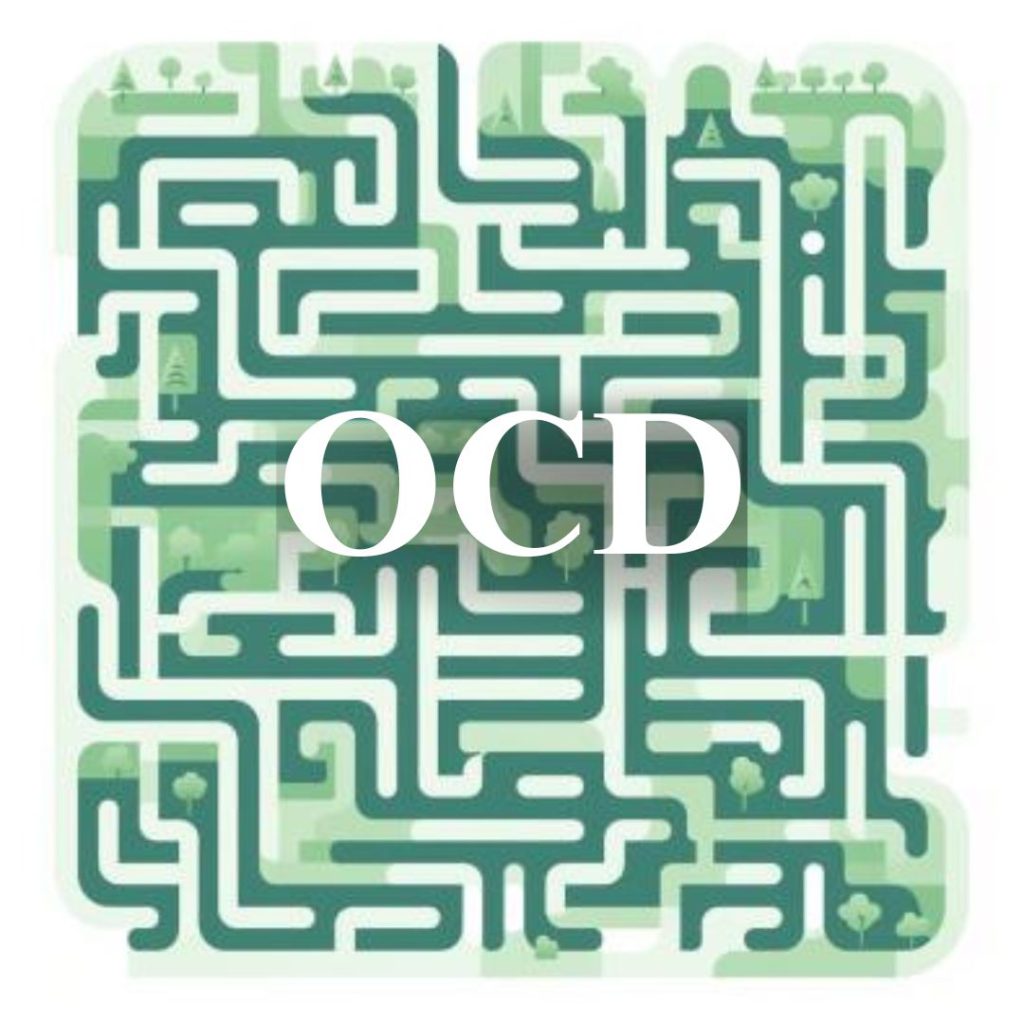INFP and OCD: Are INFPs Obsessive?

🎧 Listen to this Article 🎧
The INFP, or Introversion, Intuition, Feeling, Perceiving, personality type, is characterized by a unique blend of traits that encompass creativity, empathy, and a deep sense of individuality. INFPs are often described as idealistic, imaginative, and driven by their values. These individuals find fulfillment in pursuing meaningful connections and personal growth, making them both introspective and compassionate.
As we delve into the complex landscape of personality types and mental health, an intriguing intersection arises—INFP and OCD. This article aims to explore the nuances of how the distinctive traits of the INFP personality type may intersect with the challenges posed by OCD. Let us embark on a journey to unravel the layers of INFP OCD and gain insights into the intricate connection between personality and mental health.
INFP and OCD: What’s the Connection?
Overthinking and Rumination
INFPs, with their introspective nature, may find themselves prone to overthinking and rumination. When coupled with OCD, this tendency can escalate, leading to persistent and intrusive thoughts. These INFP intrusive thoughts often revolve around fears, uncertainties, or anxieties that may not align with their values or true desires. The intersection of overthinking inherent to the INFP personality and the intrusive thoughts characteristic of OCD can create a cycle of heightened distress and mental preoccupation.
| Discover: INFP and Overthinking
Perfectionism
Perfectionism is a common trait among INFPs, driven by their desire to align their actions with their deeply held values. In the context of OCD, this inclination towards perfectionism may intensify, as individuals feel compelled to perform rituals or behaviors with exactness and precision. The fear of not adhering to self-imposed standards or moral ideals can be a source of significant distress for an INFP with OCD. The pursuit of perfection may lead to an increased burden, exacerbating the challenges posed by both personality traits and the disorder.
| For INFPs: INFP and ADHD
The Cognitive Connection

- Introverted Feeling (Fi) and its Role in Perfectionism: INFPs lead with Introverted Feeling (Fi), a cognitive function that places a strong emphasis on personal values and an inner moral compass. While this contributes to the INFP’s authenticity and commitment to what they believe is right, it can also foster perfectionistic tendencies. In the context of OCD, Introverted Feeling may amplify the fear of not living up to one’s values, intensifying the need for precision and order in rituals and behaviors. The internal standards set by Fi may become a catalyst for the development and persistence of INFP obsessive thoughts.
- Extraverted Intuition (Ne) and Overthinking Possibilities: Extraverted Intuition (Ne) is a cognitive function that drives INFPs to explore possibilities and connections in the external world. While this can enhance creativity, it may also contribute to overthinking, especially in the context of OCD. The constant generation of possibilities by Ne may manifest in a heightened awareness of potential threats or negative outcomes, fueling the INFP obsessive thoughts. The intersection of Ne with OCD can lead to a cycle of rumination on various scenarios, intensifying anxiety and distress.
| Read more: OCD and MBTI | Is There a Connection?
How cognitive functions may manifest in OCD symptoms
The cognitive functions of the INFP can manifest in the symptoms of OCD, influencing the nature and content of obsessions and compulsions. The intricate interplay between Fi and Ne may contribute to the specific themes and patterns of INFP obsessive thoughts. Understanding how these cognitive functions influence the experience of OCD is essential for tailoring therapeutic approaches and interventions.
Does your partner have obsessions in your relationship?
Discover “Obsessions in Romantic Relationships” in the complete guide below:
INFP Personality Type

INFPs are often characterized by their introspective nature, relying on Introversion as a dominant trait. Their deep inner world is guided by Intuition, leading them to explore possibilities and connections that may go unnoticed by others. Feeling is a core aspect, influencing decision-making based on personal values and a genuine concern for others. The Perceiving trait reflects their adaptable and open-ended approach to life, allowing for flexibility and creativity in their pursuits.
| Learn about: Managing Anxiety in INFP Personalities
Strengths and weaknesses
The INFP’s strengths lie in their creative thinking, empathy, and a strong sense of authenticity. They are often passionate advocates for causes aligned with their values, fostering deep and meaningful connections with others. However, their idealistic nature and sensitivity can sometimes lead to challenges in navigating a world that may not always align with their vision.
Common challenges
While the strengths of the INFP personality type contribute to their unique charm, they also bring about certain challenges. In relationships, INFPs may grapple with maintaining boundaries, as their deep emotional investment can sometimes lead to vulnerability. Professionally, their idealism may clash with pragmatic realities, making it essential for INFPs to find roles that align with their values. The interplay of INFP and OCD introduces an additional layer to these challenges, as the traits inherent to the INFP personality type may interact with the manifestations of OCD in various aspects of their lives.
Obsessive-Compulsive Disorder (OCD)

Obsessive-Compulsive Disorder (OCD) is a mental health condition characterized by persistent, unwanted thoughts (obsessions) and repetitive behaviors or mental acts (compulsions) that an individual feels compelled to perform in response to the obsessions. To be clinically diagnosed with OCD, these obsessions and compulsions must significantly interfere with daily functioning and cause distress.
Obsessions are intrusive and distressing thoughts, images, or urges that repeatedly enter an individual’s mind. These thoughts are often irrational and cause significant anxiety. Compulsions, on the other hand, are repetitive behaviors or mental acts that a person feels driven to perform to reduce the anxiety caused by obsessions. The cycle of obsessions and compulsions can become time-consuming and may interfere with a person’s ability to focus on other aspects of life.
Did you know that “Obsessive Compulsive Disorder” has various types?
Discover 14 forms of OCD in the guide below:
Prevalence and common manifestations of OCD
OCD is a prevalent mental health condition affecting people of all ages and backgrounds. The World Health Organization ranks OCD among the top 20 causes of illness-related disability worldwide.
Common manifestations of OCD include fears of contamination, fears of harm coming to oneself or others, a need for symmetry or exactness, and intrusive, unwanted taboo thoughts. The relentless nature of these obsessions and the compulsive rituals performed to alleviate the associated anxiety can significantly impact an individual’s quality of life.
The presence of OCD symptoms in the context of an individual being an INFP with OCD adds a layer of complexity to the experience. The unique traits and characteristics of the INFP personality type may influence how OCD manifests and is coped with by individuals who identify as both INFP and grapple with the challenges of OCD.
| Related: OCPD vs. OCD
Coping Mechanisms for INFPs with OCD

The complex interplay between the INFP and OCD underscores the importance of fostering balance in various aspects of life. Recognizing that the unique traits of an INFP, such as creativity and empathy, can coexist with the challenges of OCD is a crucial step. Striking a balance involves acknowledging the impact of INFP and OCD on daily life while actively seeking ways to integrate coping mechanisms that promote mental well-being.
Therapy and Professional Support
Seeking professional support is pivotal for individuals navigating the intersection of being an INFP with OCD. Therapeutic interventions, such as cognitive-behavioral therapy (CBT) and exposure and response prevention (ERP), are commonly recommended. These therapeutic approaches can help individuals understand the cognitive patterns associated with their personality type and OCD, providing tools to manage intrusive thoughts and compulsive behaviors. Psychiatric consultations may also be beneficial, exploring the potential role of medication in managing symptoms.
Personal Coping Strategies
Personal coping strategies play a significant role in managing the challenges posed by INFP OCD. Individuals often find strength in sharing their experiences and learning from others who navigate similar intersections. Strategies may include mindfulness practices, creative outlets for self-expression, and establishing structured routines to manage perfectionistic tendencies. The emphasis on self-compassion and acceptance is paramount, acknowledging that the journey of an INFP with OCD is unique and may require a combination of professional guidance and personal resilience.
HealWiser’s Last Piece of Advice
Throughout this exploration of INFP and OCD, we’ve delved into the intricate intersection of personality and mental health, examining how the traits of the INFP personality type may intertwine with the challenges posed by Obsessive-Compulsive Disorder.
If you resonate with the experiences shared, remember that seeking help is a strength. Professional support, recommended resources, and online communities await, providing avenues for understanding, coping, and connecting with others navigating the unique journey of INFP and OCD.
In embracing the complexities of being an INFP navigating OCD, one discovers a unique blend of strengths—creativity, empathy—and challenges—perfectionism, overthinking. Recognizing this duality is the first step toward a more balanced and supported journey.
Sharing your experiences can provide valuable insights and emotional support. So…
…share your experience with HealWiser and others in the comments section below this post.






